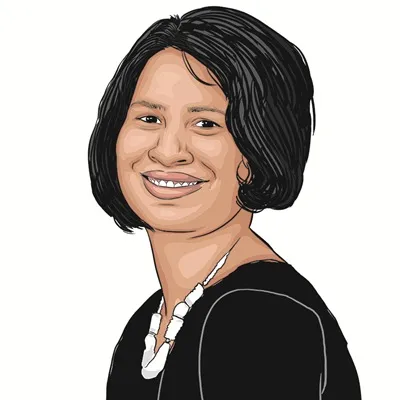Opinion Balasore girl wasn’t afraid of demanding accountability. Her death shows how society continues to fail women
We were accustomed to shrugging off unwanted and lewd comments and hands that reached out to touch us as we walked through narrow lanes on our way to college
 Every time a woman speaks out against sexual harassment, she sets herself up for more than just legal battle. She exposes herself to ridicule, character assassination, silence from the institution, and the burden of proof that is rarely matched by sensitivity.
Every time a woman speaks out against sexual harassment, she sets herself up for more than just legal battle. She exposes herself to ridicule, character assassination, silence from the institution, and the burden of proof that is rarely matched by sensitivity. She skips ahead of her friend near India Gate in Delhi, her infectious energy captured on a video that is now viral on social media. “She is our power girl,” the friend wielding the camera can be heard saying. The girl turns to the camera and repeats: “Power girl”.
On July 12, the 20-year-old second-year Integrated B.Ed student at the Fakir Mohan (Autonomous) College in Balasore set herself on fire, succumbing to her injuries nearly 60 hours later in hospital. For about six months, the young woman in the video had been allegedly harassed by her professor. Since her death, social media has been flooded with videos of her — not just news reports about the self-immolation and harassment accusations, but also the reels and vlogs that she herself had shared. Of these, the one about her day out at India Gate stands out, capturing not just her spirit, but also the dreams that perhaps propelled her from Palasia village in Balasore district’s Bhograi block to Fakir Mohan College.
The most common sentiment expressed in the comments now being posted under the young woman’s videos is disbelief — how, people ask, could a cheerful, spirited young woman take such a drastic step? A fuller picture emerges only when one watches other videos, news clips of her giving interviews to the media, her voice quivering but composed. In these clips, she speaks out against the assistant professor, also the head of the department (HOD), accusing him of asking for a “favour”, harassing her for months, and ultimately barring her from appearing for her fourth-semester examination. “The reason I am speaking to the media now is because I want justice,” she says in one of the videos.
She has left behind a deep sense of shock — not only over how her life ended, but that her many appeals to the college principal, police, local authorities and others appear to have gone unheard. Stories and theories about the nature of her harassment, and the “suspicious” circumstances of her death have acquired a life of their own.
Then, there are the videos which show why, even today, 12 years after the Prevention of Sexual Harassment (PoSH) Act was passed, women like her, who find the courage to speak up against sexual harassment, continue to battle misunderstanding and hostility regarding their predicament. In another news clip that has been circulating, another assistant professor of English, and a member of the internal complaints committee (ICC) that looked into the student’s complaint, tells reporters that although the HOD had apparently asked for “favours, he did not cause her any harm”. She says, “if she did not like what the HOD said, why did not she discuss it with him”. The HOD that the woman is referring to is the same authority figure who allegedly instigated other students to complain against her “netagiri (activism)”. In its report, the ICC found the HOD to be merely “rude” with students.
Six years after the fire lit by the #MeToo movement, sexual harassment remains misunderstood and women who complain of it continue to be silenced. It is seen as an unavoidable reality of life that must be endured. Growing up in Balasore and other towns of Odisha, it seemed to me that the only way a girl could survive was by developing a teflon coating around the mind. We were accustomed to shrugging off unwanted and lewd comments and hands that reached out to touch us as we walked through narrow lanes on our way to college. Was there, perhaps, a yearning to be invisible, as they crossed a crowded town square or passed by a group of men ogling at them? They — we — didn’t need lectures that normalised or excused the loathsome behaviour of men. Social conditioning was enough.
From what I’ve read about her, this young woman appears to have done better than many girls of my time. She wasn’t afraid to be heard and seen, and in speaking of her ordeal showed the kind of courage that few 20-year-olds can and do. Her father, in interviews, has spoken about her aspiration to become either a social activist or a teacher. That vision was rooted not just in ambition but also in confidence — perhaps bolstered by her active involvement with the Akhil Bharatiya Vidyarthi Parishad (ABVP), where she served as a coordinator of the Rastriya Kala Manch. The student was also a designated self-defence instructor, empowering college girls like herself.
On July 15, the state government announced compensation for her family. The cheque was handed, four days later, to her family by Balasore MP Pratap Sarangi — there were cameras present to capture that moment too. His office, incidentally, was one of the several places she had approached for justice. This promptness from the authorities, so evident after her death, may have saved her life if only it had come earlier.
alaka.sahani@expressindia.com





